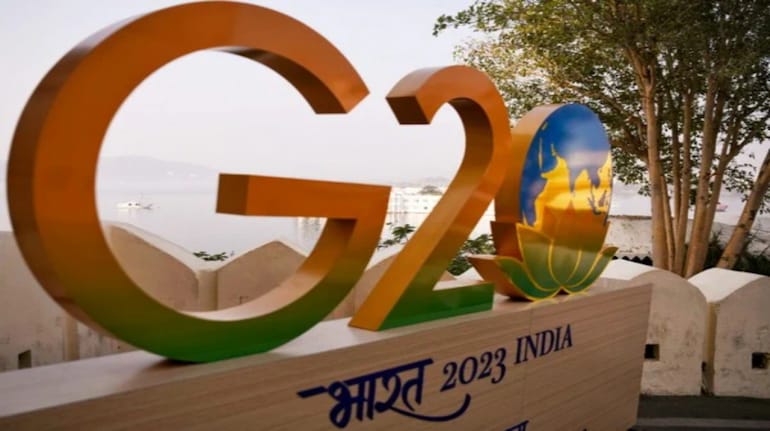



With the curtains set to rise on the G20 summit in Delhi, it appears that a consensual joint statement reflecting the views of the global political leadership may remain elusive at this mega-event which has been planned in a grand and spectacular manner by India – the current rotational Chair of the group.
India Sets The Bar HighUnder Prime Minister Narendra Modi, the deliberations of the G20 have been framed and conducted in a very comprehensive and energetic manner since Delhi assumed the presidency in December last. In the past ten months, almost 200 meetings among officials and domain experts of the G20 and at ministerial level have been held in different parts of India to discuss a wide range of development issues relevant to human security. This is unprecedented in the history of the G20 and India has been commended for the wide net it has cast.
Given the scale of global developmental challenges whose equitable management warrants detailed and empathetic dialogue between the developed and developing parts of the world, India has used its chairmanship of the G20 to imbue the global dialogue with purpose and directivity – but clearly there are many geo-political challenges that remain intractable.
India’s G20 sherpa, the indefatigable Amitabh Kant noted that during the numerous deliberations including the 13 ministerial-level meetings held so far, 12 outcome documents and 12 other deliverables had been adopted with consensus – but it is pertinent to add that no joint communiqués have been adopted at the ministerial meetings.
Ukraine’s Shadow Over G20The appropriate semantic choice to convey the divergent views of member states about the war in Ukraine and to meld discordant positions into a consensually acceptable turn of phrase has remained an obstacle. Disagreement between Russia and the western nations persists and India’s attempts to evolve a via-media have not succeeded – at the time of writing this comment.
It is understood that the text presented by the Indian team for the draft leaders declaration of the Delhi G20 summit does not go “far enough” on the Ukraine crisis according to a EU official. It was further highlighted that Russia and China stand isolated on the Ukraine issue and the fact that both Presidents – Vladimir Putin and Xi Jinping – are not attending the summit is illustrative of the geopolitical brittleness that currently prevails.
This is not the first time that discordant geopolitics have entered a G20 summit and in December 2018 when Argentina held the chair – a Russia-Ukraine military clash muddied the waters. At that summit the global leaders expressed their anxiety about multilateralism being under threat and this issue has acquired greater salience in 2023 with major powers turning inwards and isolationist.
The tension between the US led west and both Russia and China on one hand, as also the Beijing-Moscow strategic huddle; and the slowing down of the global economy which is more visible in China have induced greater polarisation and insularity within geopolitical groupings. Consequently, the spirit of robust and cooperative multilateralism that animated global trade and attendant prosperity in the post-Cold war decades is fraying.
While the lack of a joint statement at the Delhi summit may be a procedural first for the G20 since 2008 – India can take satisfaction for having navigated very choppy waters in a resolute manner. The AU (African Union) is likely to be admitted as the 21st member of the group (will it become G21?) and this is a welcome and tangible development.
As intangible multilateral outcomes go, Delhi has demonstrated that with the UN Security Council having been rendered ineffective – the G20 is the only inclusive forum that can perhaps enable a global political dialogue at the highest level. Both China and Russia must be engaged at the summit – despite the decision of their top leaders to skip the Delhi meet. So be it. But the views of their representatives ought to be heard in a courteous and malleable manner to keep the lines of communication open and irrigated.
At the just concluded EAS summit in Indonesia (September 7), PM Modi reiterated his plea that “today’s era is not of war” and that “dialogue and diplomacy form the only path to resolution”.
Hopefully the deliberations in Delhi over the weekend will internalise the import of Vasudhaiva Kutumbakam (the world is one family) and the Modi advocacy for the G20 to pursue human-centric progress, even while nurturing the health of the planet.
When the curtains come down on G20, Delhi will have to deal with its own abiding challenges – an assertive China, internal security challenges exacerbated by the erosion of fraternity, and the stark reality that India has the lowest per capita income among the G20 nations.
The Chanakyan template of ensuring the “yogakshema” (well-being) of the most vulnerable citizen must remain the lodestar of governance as India prepares for 2047.
Commodore C Uday Bhaskar (Retd.) is Director, Society for Policy Studies, New Delhi. Views are personal and do not represent the stand of this publication.Discover the latest Business News, Sensex, and Nifty updates. Obtain Personal Finance insights, tax queries, and expert opinions on Moneycontrol or download the Moneycontrol App to stay updated!
Find the best of Al News in one place, specially curated for you every weekend.
Stay on top of the latest tech trends and biggest startup news.